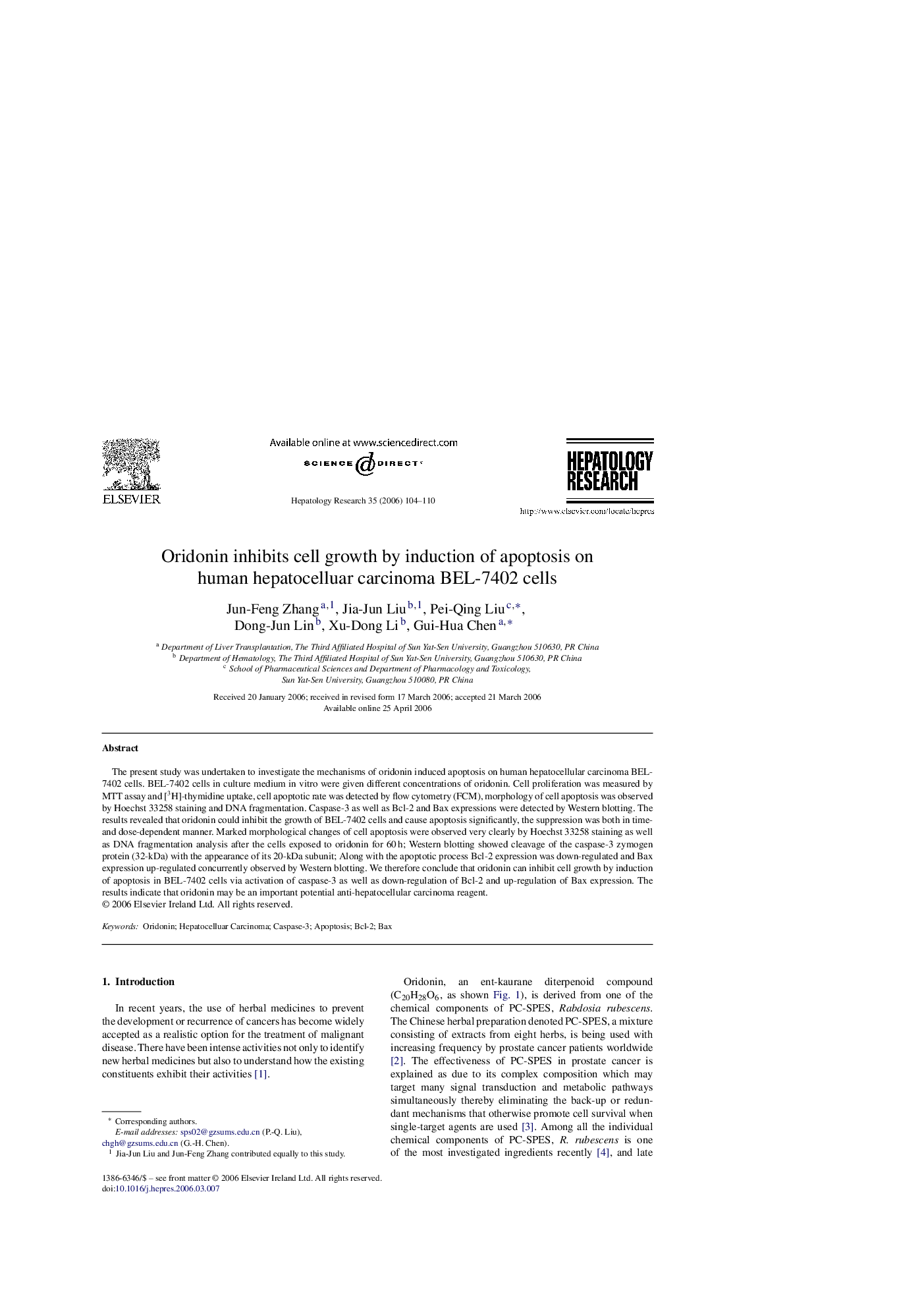| Article ID | Journal | Published Year | Pages | File Type |
|---|---|---|---|---|
| 3311549 | Hepatology Research | 2006 | 7 Pages |
Abstract
The present study was undertaken to investigate the mechanisms of oridonin induced apoptosis on human hepatocellular carcinoma BEL-7402 cells. BEL-7402 cells in culture medium in vitro were given different concentrations of oridonin. Cell proliferation was measured by MTT assay and [3H]-thymidine uptake, cell apoptotic rate was detected by flow cytometry (FCM), morphology of cell apoptosis was observed by Hoechst 33258 staining and DNA fragmentation. Caspase-3 as well as Bcl-2 and Bax expressions were detected by Western blotting. The results revealed that oridonin could inhibit the growth of BEL-7402 cells and cause apoptosis significantly, the suppression was both in time- and dose-dependent manner. Marked morphological changes of cell apoptosis were observed very clearly by Hoechst 33258 staining as well as DNA fragmentation analysis after the cells exposed to oridonin for 60Â h; Western blotting showed cleavage of the caspase-3 zymogen protein (32-kDa) with the appearance of its 20-kDa subunit; Along with the apoptotic process Bcl-2 expression was down-regulated and Bax expression up-regulated concurrently observed by Western blotting. We therefore conclude that oridonin can inhibit cell growth by induction of apoptosis in BEL-7402 cells via activation of caspase-3 as well as down-regulation of Bcl-2 and up-regulation of Bax expression. The results indicate that oridonin may be an important potential anti-hepatocellular carcinoma reagent.
Related Topics
Health Sciences
Medicine and Dentistry
Gastroenterology
Authors
Jun-Feng Zhang, Jia-Jun Liu, Pei-Qing Liu, Dong-Jun Lin, Xu-Dong Li, Gui-Hua Chen,
